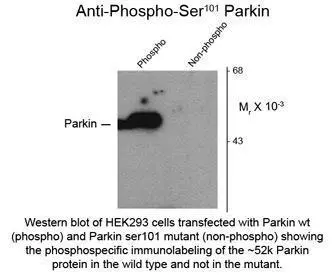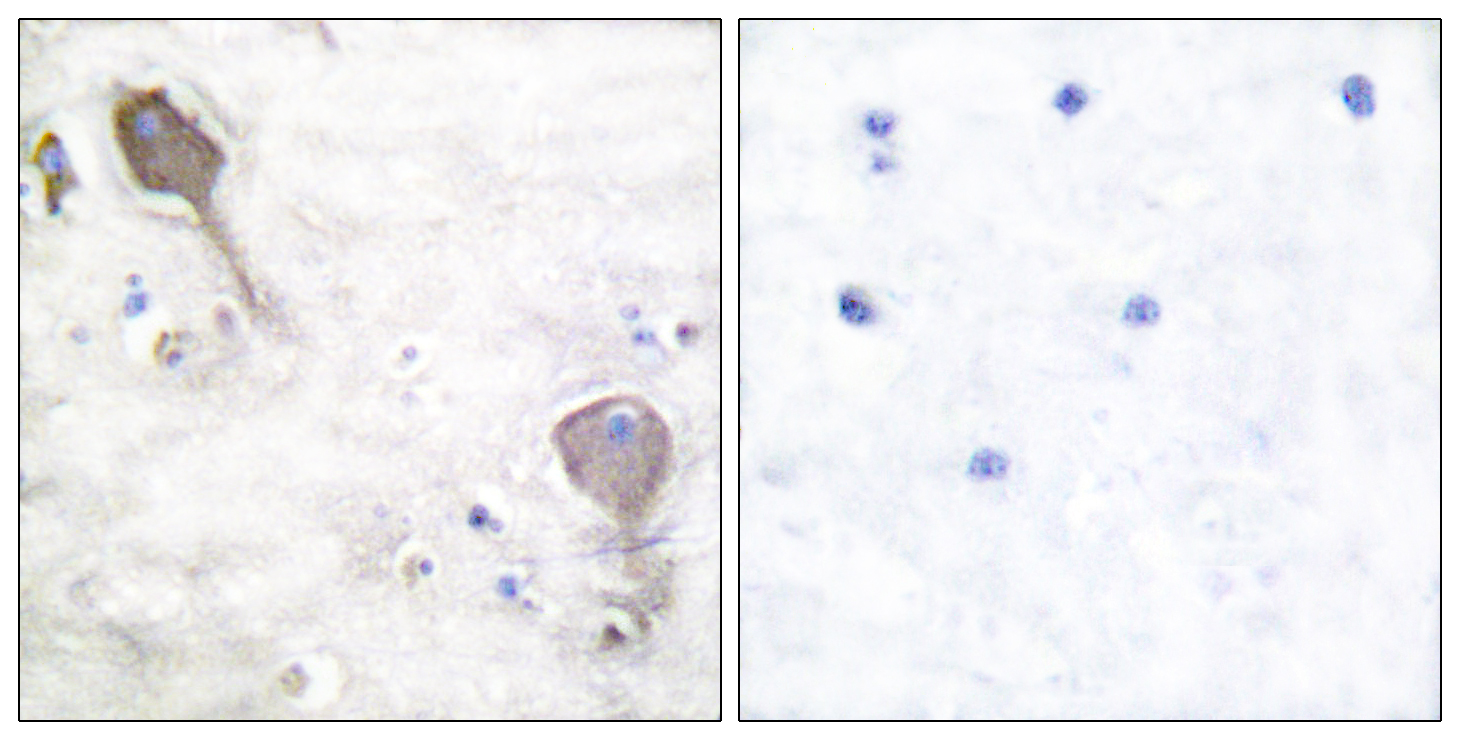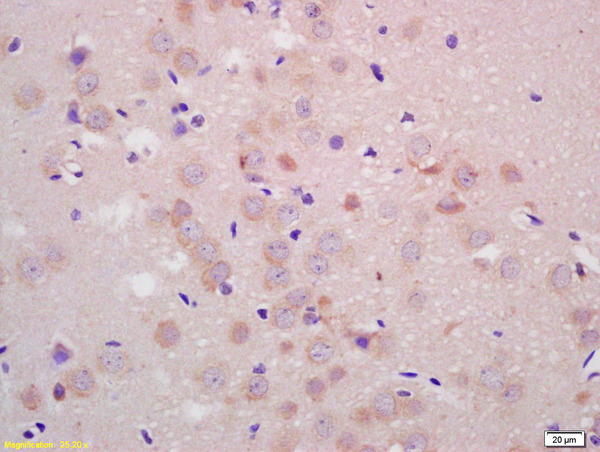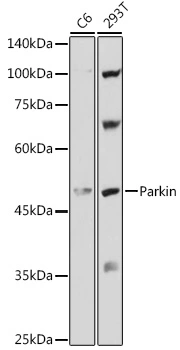
Parkin (phospho Ser101) antibody
GTX31094
ApplicationsWestern Blot
Product group Antibodies
ReactivityHuman
TargetPRKN
Overview
- SupplierGeneTex
- Product NameParkin (phospho Ser101) antibody
- Delivery Days Customer9
- ApplicationsWestern Blot
- CertificationResearch Use Only
- ClonalityPolyclonal
- ConjugateUnconjugated
- Gene ID5071
- Target namePRKN
- Target descriptionparkin RBR E3 ubiquitin protein ligase
- Target synonymsAR-JP, LPRS2, PARK2, PDJ, E3 ubiquitin-protein ligase parkin, Parkinson disease (autosomal recessive, juvenile) 2, parkin, parkinson juvenile disease protein 2, parkinson protein 2 E3 ubiquitin protein ligase, parkinson protein 2, E3 ubiquitin protein ligase (parkin)
- HostRabbit
- IsotypeIgG
- Protein IDO60260
- Protein NameE3 ubiquitin-protein ligase parkin
- Scientific DescriptionThe precise function of this gene is unknown; however, the encoded protein is a component of a multiprotein E3 ubiquitin ligase complex that mediates the targeting of substrate proteins for proteasomal degradation. Mutations in this gene are known to cause Parkinson disease and autosomal recessive juvenile Parkinson disease. Alternative splicing of this gene produces multiple transcript variants encoding distinct isoforms. Additional splice variants of this gene have been described but currently lack transcript support. [provided by RefSeq, Jul 2008]
- ReactivityHuman
- Storage Instruction-20°C or -80°C,2°C to 8°C
- UNSPSC41116161

![Western Blot: Parkin (phospho-Ser101) Antibody [GTX31094] - HEK293 cells transfected with Parkin WT (Phospho) and Parkin S101 mutant (non-phospho) showing the phospho-specific immunolabeling of the ~ 52 k parkin protein. The immunolabeling is absent in the parkin S101 mutant. Western Blot: Parkin (phospho-Ser101) Antibody [GTX31094] - HEK293 cells transfected with Parkin WT (Phospho) and Parkin S101 mutant (non-phospho) showing the phospho-specific immunolabeling of the ~ 52 k parkin protein. The immunolabeling is absent in the parkin S101 mutant.](https://www.genetex.com/upload/website/prouct_img/normal/GTX31094/Parkin-phospho-Ser101-antibody-GTX31094-WB-1_w_23060722_237.webp)







